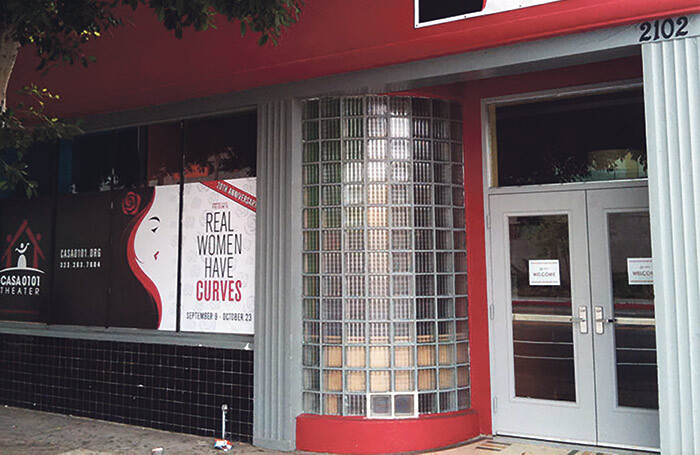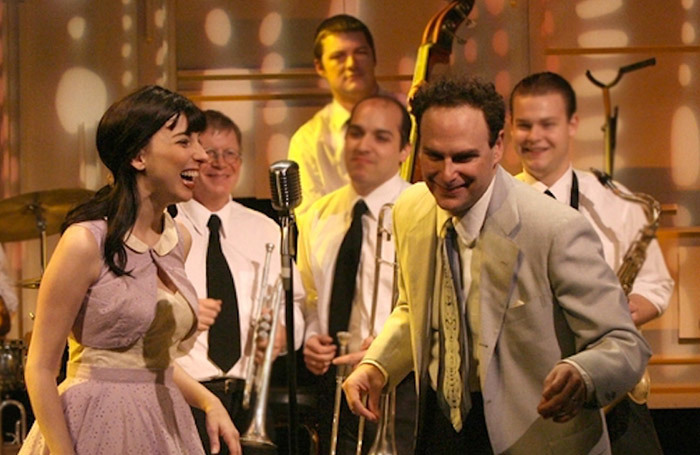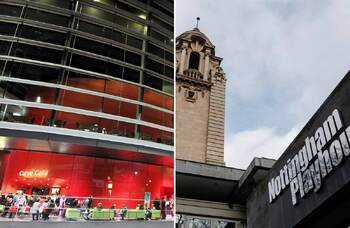LA law: How Assembly Bill 5 could change small-scale theatre in Los Angeles forever
Legislation aimed at reining in California’s gig economy has had a tumultuous effect on the arts industry. Steven Leigh Morris finds out how a requirement to hire workers as employees rather than independent contractors has inadvertently threatened the future of many small venues in Los Angeles
In 2020, California took aim at the gig economy with a landmark new bill, specifically targeting transport companies Uber and Lyft, in a bid to provide workers with more security, a minimum wage and benefits. But a totally unintended consequence of the legislation has been to threaten the future of more than 100 small venues across Los Angeles, with theatremakers facing spiking costs, broken business models and potential closure.
California’s introduction of Assembly Bill 5 led to almost all workers across the state, whether in profit or non-profit businesses, being classified as ‘employees’ rather than ‘independent contractors’, as those driving Ubers – and indeed those working on LA stages – had been before the bill was brought in.
This meant all of those employees would be paid at least minimum wage and would have access to unemployment benefits, while the employers would be subject to payroll taxes and other costs. All very well, except post-AB5 the multibillion-dollar Uber is treated the same as a non-profit theatre in Burbank with an annual budget of $140,000. And it could fundamentally change small-scale theatre in LA for good.
Beatrice Casagran, who runs the 50-seat Ophelia’s Jump theatre at the eastern edge of LA county on a budget of $185,000, now needs to raise $560,000 to maintain programming. “I’m in despair,” she laments.
Because the new classification standards under AB5 all but eliminates the category of ‘freelancers’, all theatre workers from backstage to actors, designers and front-of-house staff are now employees for the time they work at a company. Consequently, according to a dozen LA-area artistic directors interviewed, the annual budget of small arts organisations has spiked by an average 40%, disproportionately punishing companies operating on less than $300,000 a year, particularly common in a state with a dearth of public funding for the arts.
California’s arts budget was ranked at 24th highest in the US in 2021, according to the National Assembly of State Arts Agencies, at just 73 cents a head. This compares to the highest, Minnesota, with $6.37 per head.
During the pandemic, legislators attempted to mitigate the damage of AB5 with a bill designed to funnel state funds to struggling small arts organisations. Passing the Senate and the Assembly, state governor Gavin Newsom vetoed it, saying the state budget’s one-time $50 million allocation to small arts groups was enough. Local advocates disagree, saying AB5’s added cost to small arts organisations is as much as $350 million. “A Band-Aid repair,” bemoans Playwrights’ Arena artistic director Jon Lawrence Rivera.
The once 150 or so professional companies producing theatre in LA County in venues of 99-seats or fewer were last year described in the New York Times as “a vibrant subculture of experimentation and tradition”. These venues operated with the reluctant blessing of the national stage actors’ union, Actors’ Equity Association.
The union permitted these companies to “waive” its minimum-wage requirement for actors and stage managers, providing producers didn’t turn a profit on these shows – hence the union’s restriction of companies to venues of 99-seats or fewer and a mandatory stipend for actors that increased from $9 to $15 per performance.
In a bygone, golden era for live performance, when LA real estate costs were markedly less than on the East Coast, theatremakers poured into LA from cities where rising costs had constricted their creative opportunities. Graduates of local universities formed companies under this ‘Equity Waiver’ later called the 99-Seat Theatre Plan. Fresh out of UCLA in 1980, actor Tim Robbins founded his Actors’ Gang under this scheme, staging productions that went on to tour in New York, London, Europe, Central and South America, and China. The AEA initially justified its waiver as an employment opportunity, since talent scouts frequented these theatres.
Deaf West Theatre was operating under the plan in its North Hollywood venue when it staged its version of Big River in 2001. Two years later, that show was on Broadway. Over at Sacred Fools Theater Company, Vanessa Stewart’s 2008 musical Louis & Keely: Live at the Sahara transferred to the mid-size Geffen Playhouse adjoining UCLA, with union contracts, and went on to play in Chicago.
Continues...

John Pollono’s thriller Small Engine Repair transferred from Rogue Machine in 2011 to Off-Broadway two years later, to be released in 2021 as an independent film. Deaf West Theatre returned to Broadway in 2015 with its production of Spring Awakening,born under the 99-Seat Theatre Plan.
After a contentious battle with local membership, AEA replaced the 99-Seat Theatre Plan with a new contract in 2016, requiring actors and stage managers be paid minimum wage for rehearsals and performances, while permitting ‘membership companies’ with in-house ensembles to continue acting for stipends. Then came AB5 in 2020, supported by the union, which dismantled AEA’s safety net even for the membership companies.
In reaction, some small theatres are now merging. The Skylight Theatre in Los Feliz is combining resources with nomad Playwrights’ Arena – both veteran companies. In former seasons, both theatres would produce a combined seven or eight plays. In the 2022 season, they are now a single entity producing three plays.
Pasadena’s Boston Court Performing Arts Center, with its custom-built 99-seat theatre venue, didn’t qualify for AEA’s “membership company” exemption, so it was smacked hard by the union’s 2016 contract, says managing director Cheryl Rizzo. In 2015, the theatre produced a season of four plays, using 42 actors. Now that AB5 has kicked in, its plan for 2022 is to stage just two plays, with five actors. Artistic director Jessica Kubzansky notes the lost opportunities for actors, playwrights, designers, stage managers and board operators. Not to mention the local restaurants and shops, which benefit from the presence of theatre artists and audiences.
Stewart – actor, playwright and co-artistic director of Hollywood’s Sacred Fools Theater Company – says she’s contemplating leaving California if the damage incurred by AB5 isn’t remedied by legislation providing meaningful government subsidies to help theatres comply with the new law. While such legislation is being planned, Stewart is workshopping her new 10-actor musical with a local high-school drama department because, she says: “I simply can’t afford to develop this work with professional actors under AB5.” Her theatre’s season used to comprise five shows a season with 48 actors. The 2022 season will consist of one play with four actors.
Continues...

Some theatres have defied AB5 by going non- professional, such as CASA 0101 in East LA. The theatre is currently using 23 actors for its production of Arena, a play based on the LGBT+ nightclub in West Hollywood. “Under AB5, that one production would have cost $175,000,” says executive director Emmanuel Deleage. “Instead, all of the actors are volunteers… Volunteering is still legal in the United States, as far as I know.” In 2019, under AEA’s plan, he would have paid each actor a weekly stipend of $300 for the run, but now that’s illegal under AB5.
The Fountain Theatre, a well-oiled 80-seat non- membership theatre with a $600,000 budget, has a ‘damn the torpedoes’ approach. “We’re not letting AB5 or other increased costs affect our programming,” says producing director Simon Levy, adding that the only way to manage this is to solicit more donations.
Continues...

That’s easier said than done for the likes of Tom Ormeny and his wife, Maria Gobetti, who have been running the Victory Theatre Center in Burbank for 43 years, currently on an annual budget of $140,000. “A play that cost us $20,000 to produce now costs $70,000,” Ormeny laments. “All of this is part of a larger pattern dividing the ‘haves’ and ‘have-nots’.”
Stewart would like to see an approach to pay raises that doesn’t crush creative opportunities. “The reason I became an activist is so that a young Vanessa has a way to put on a show for $7,500 [the price tag for her Louis & Keely: Live at the Sahara in 2008] – that her mom and dad helped pay for, that she could build a career from. That world doesn’t exist anymore.”
And in an ironic twist to the story, the transport companies were, in late 2020, granted an exemption to AB5. So the legislation no longer applies to those gig-economy firms it was designed for, while small arts organisations, which were not in the sights of state legislators, are left working out how they can survive.
Opinion
Recommended for you
Opinion
Recommended for you
Most Read
Across The Stage this weekYour subscription helps ensure our journalism can continue
Invest in The Stage today with a subscription starting at just £7.99












